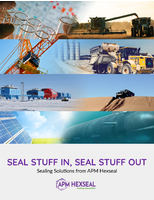Amcor Leads Industry Conversation on “Choose Plastic†with New Initiative
Lightweight, Shatterproof, Transparent, Recloseable, Resealable and Infinitely Recyclable, PET is Rapidly Becoming the World’s Preferred Packaging Material
Aann Arbor, Michigan, November 15, 2019: With a goal of educating consumers, customers and other stakeholders on the benefits of plastic packaging, Amcor recently launched a “Choose Plastic” marketing campaign. The multi-pronged initiative, which includes a new webpage (visit www.amcor.com/chooseplastic), an informative brochure and other materials, is designed to:
- Tell the “PET story” with truth, strength and conviction – clearing up common misperceptions regarding plastic packaging.
- Demonstrate where PET stands versus other packaging types, including glass, cans and Tetra aseptic boxes.
- Help customers educate their employees, legislators and consumers on the benefits of plastic packaging.
“Plastic packaging gives our customers a safe, responsible and recyclable way to deliver products to their consumers,” said Eric Roegner, President of Amcor Rigid Packaging (ARP). “PET is infinitely recyclable* and it’s carbon footprint is less than glass and other packaging materials. But there is still room for improvement, which is why we are working together with our customers and industry partners to boost recycling rates, increase the proportion of recycled content in the plastics we use, and reduce the waste in landfills and nature. Our goal is to create an overall positive impact for all stakeholders.”
Not only are PET bottles and jars lightweight, shatterproof, transparent, recloseable and resealable, studies also show that they are infinitely recyclable, generate up to 70% less greenhouse gas emissions than other packaging types**, require fewer fossil fuels to produce than aluminum cans*** and have fewer transportation costs than glass1. Additionally, 90% of the PET that goes into recycling bins gets recycled2, while only 49% of cans3, 40% of glass2 and 16% of Tetra aseptic boxes4 get recycled.
Mr. Roegner also noted that 97% of Amcor Rigid Packaging’s bottles and jars are designed to be recyclable. The company has pledged to develop all of its packaging to be recyclable or reusable by 2025.
In addition, Amcor is working with associations such as The Plastics Industry Association, NAPCOR, and The Recycling Partnership to promote plastics, increase recycling rates and drive greater use of post-consumer materials. Amcor is also working with environmental organizations, such as the World Wildlife Fund and the Trash Free Seas Alliance to eliminate plastic waste.
“PET has a positive story to tell,” added Mr. Roegner. “And together with industry partners, we want to make sure that story gets told.”
(*with existing technologies, including chemical recycling. **Versus aluminum cans and glass. ***Amcor Life Cycle Analysis 1 Goldman Sachs The Plastic Paradox, 2017. 2 In the U.S., NAPCOR Recycling Report, 2017. 3 https://resource-recycling.com/recycling/2019/09/17/aluminum-can-recycling-rate-increases-after-down-year/. 4 Waste Advantage Magazine, May 31,2019. Breaking Through Misconceptions.)
About Amcor
Amcor is a global leader in developing and producing responsible packaging for food, beverage, pharmaceutical, medical, home- and personal-care, and other products. Amcor works with leading companies around the world to protect their products and the people who rely on them, differentiate brands, and improve value chains through a range of flexible and rigid packaging, specialty cartons, closures, and services. The company is focused on making packaging that is increasingly light-weighted, recyclable and reusable, and made using a rising amount of recycled content. Around 50,000 Amcor people generate US$13 billion in sales from operations that span about 250 locations in 40-plus countries. NYSE: AMCR; ASX: AMC
www.amcor.com I LinkedIn I Facebook I Twitter I YouTube



